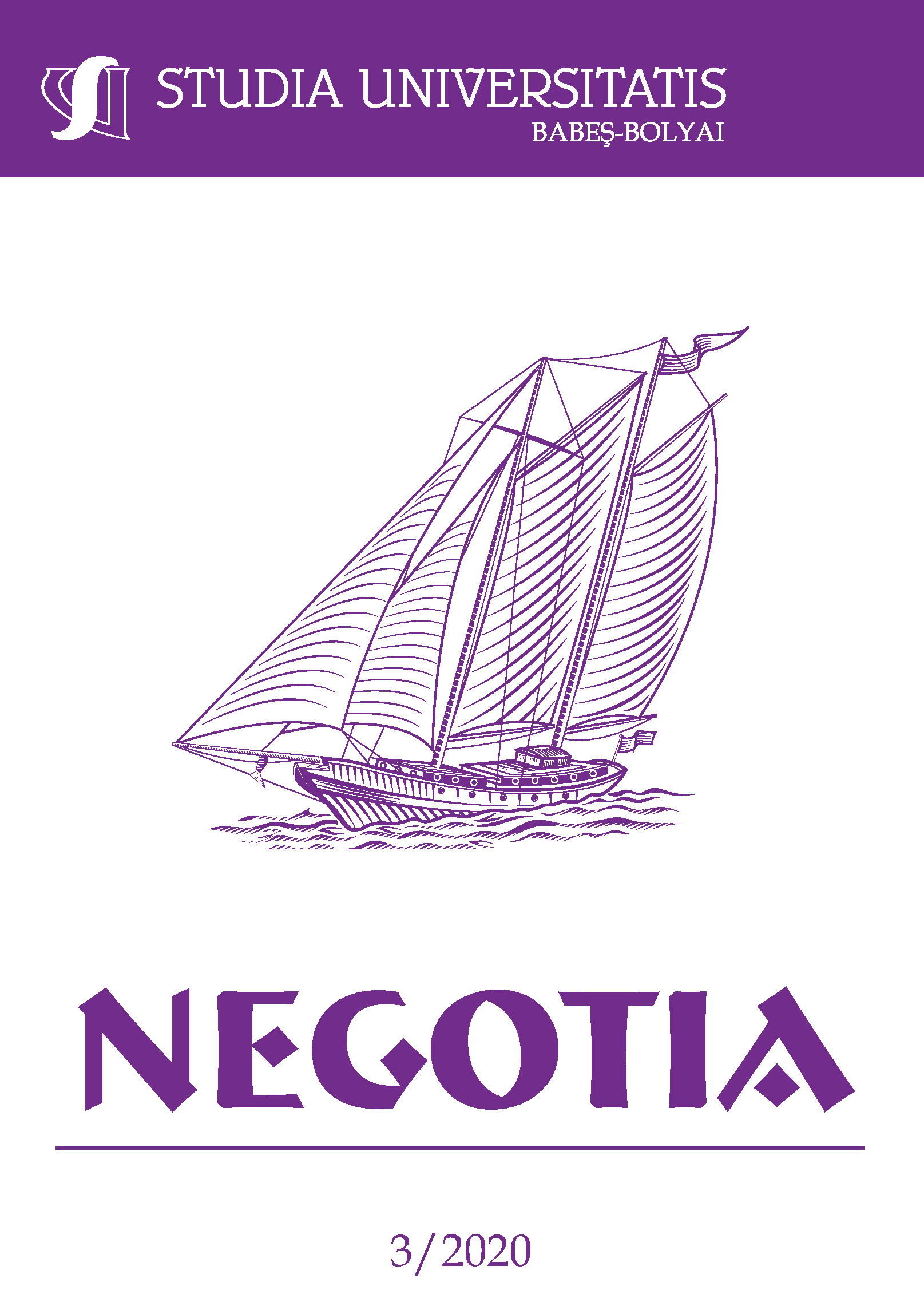THE EMERGENCE OF AN EUROPEAN UNION CULTURAL DIPLOMACY
DOI:
https://doi.org/10.24193/subbnegotia.2020.3.03Keywords:
European Union, Economic Support to Developing Countries, Economic Growth, Public Diplomacy, Cultural Diplomacy, European External Action Service.Abstract
On 16 April 2020, the Organisation for Economic Co-operation and Development (OECD) released preliminary figures[1] according to which the collective Official Development Assistance (ODA) from the European Union (EU) and its Member States to developing countries amounted to 75.2 billion in 2019, representing 55.2% of global assistance. The EU and its Member States therefore maintain their position as the largest international aid donor.
In spite of the vast amount of resources spent annually by the EU, there is widespread perception that the EU punches below its weight. Notwithstanding the undeniable positive impact that the EU external policies have on the ground, the EU’s role in international development remains mostly invisible.
This paper presents the perception of the EU and EU’s policies abroad and makes the case for the necessity of an integrated and fully coordinated EU Public Diplomacy (PD) capable of communicating effectively and strengthening EU’s role as a global actor. It argues that culture has a substantial potential in Europe’s international relations, making the case for the necessity of an integrated and tailor-made EU Cultural Diplomacy. This paper shows that culture is a worthwhile investment in driving economic growth. Failure to capitalise on this would be a huge missed opportunity for Europe.
JEL classification: O10, Z10
[1] Publication of preliminary figures on 2019 Official Development Assistance, https://ec.europa.eu/commission/presscorner/api/files/attachment/864363/Annex_Tables_and_Graphs_ODA_2019.pdf
References
Consolidated version of the Treaty on the Functioning of the European Union, Official Journal of the European Union, 26 October 2012, Article 6 and Article 167, https://eur-lex.europa.eu/legal-content/en/txt/pdf/?uri=celex:12012e/txt&from=en
Cooke Ph. & De Propris (2011) A policy agenda for EU smart growth: the role of creative and cultural industries, Policy Studies
Deloitte, 2008. The economic contribution of the visitor economy. Final report. London: Deloitte.
Department of Culture, Media and Sport (DCMS) 2010. Creative industries economic estimates. February 2010. London: Department of Culture, Media and Sport.
Duke S., 2013. The European External Action Service and Public Diplomacy- Discussion Papers in Diplomacy, Clingendael Netherlands Institute of International Relations, pp 20-25.
European Commission, Communication from the Commission to the European Parliament, the Council, the European Economic and Social Committee and the Committee of the Regions on a European agenda for culture in a globalizing world, 10 May 2007, https://eur-lex.europa.eu/legal-content/en/txt/html/?uri=legissum:l29019&from=en
European Commission, Joint Communication to the European Parliament and the Council Towards an EU strategy for international cultural relations, JOIN (2016) 29 final, Brussels, 8.6.2016. https://eur-lex.europa.eu/legal-content/en/txt/html/?uri=celex:52016jc0029&from=en
European Council, 2007. Council conclusions on the contribution of the cultural and creative sectors to the achievement of the Lisbon objectives. Brussels: EU Council, 9021/07
European Council, Council Conclusions on the promotion of cultural diversity and intercultural dialogue in the external relations of the Union and its Member States, 2905th EDUCATION, YOUTH AND CULTURE Council meeting Brussels, 20 November 2008, https://www.consilium.europa.eu/ueDocs/cms_Data/docs/pressData/en/educ/104189.pdf
European Parliament, Cultural dimensions of EU external actions European Parliament resolution of 12 May 2011 on the cultural dimensions of the EU’s external actions (2010/2161(INI)), Publications Office of the EU
Fletcher Tom, The Naked Diplomat: Understanding Power and Politics in the Digital Age, HarperCollins Publishers Limited, 2016
Howson P., Dubber J., 2014. Culture matters – Why culture should be at the heart of future public policy, publish by the British Council, 2014, https://www.britishcouncil.org/sites/default/files/culture-matters-report.pdf
Melissen, J., 2007. The New Public Diplomacy – Soft Power in International Relations, Palgrave Macmillan
NESTA, 2009. The Innovation index. London: NESTA
OECD, Publication of preliminary figures on 2019 Official Development Assistance, April 2020 https://ec.europa.eu/commission/presscorner/api/files/attachment/864363/Annex_Tables_and_Graphs_ODA_2019.pdf
Publications Office of the EU, Director-General for Education, Youth, Sport and Culture (European Commission), Preparatory action “Culture in external relations”, Engaging the world: towards global cultural citizenship, October 2017
Rose M. and Wadham-Smith N., Mutuality, Trust and Cultural Relations (London: The British Council, 2004), pp.34-5
UNESCO, The 2005 Convention on the Protection and Promotion of the Diversity of Cultural Expressions, Paris, 20 October 2005
Downloads
Published
How to Cite
Issue
Section
License
Copyright (c) 2020 Studia Universitatis Babeș-Bolyai Negotia

This work is licensed under a Creative Commons Attribution-NonCommercial-NoDerivatives 4.0 International License.



